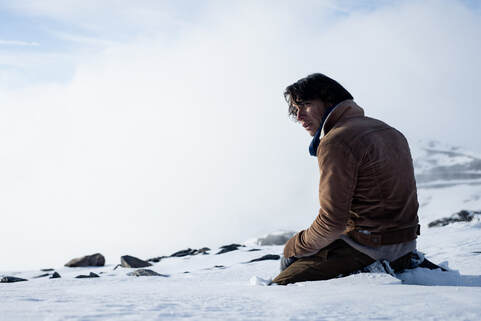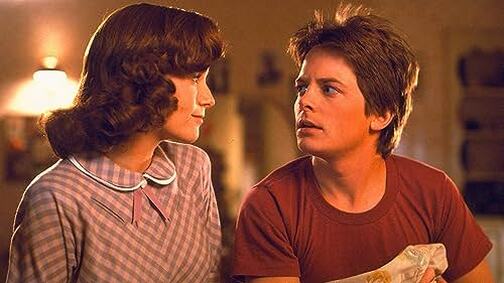|
Two of cinema’s greatest directors sensed the end in 2023. In Killers of the Flower Moon, Martin Scorsese continued his reorientation to the violent men that have characterized much of his career, portraying them as brutes with none of the charisma of his earlier work while casting himself in the role of a radio show narrator humiliated by the dismissive way that film’s tale of rancid monstrosity is being passed along to the audience. He proceeded to give poignant interviews about his looming death, lamenting that there’ll only be a few more chances to do this thing that he loves so much. That kind of ruefulness isn’t in Killers of the Flower Moon, but it’s all over The Boy and the Heron, the latest and likely final masterpiece from Hayao Miyazaki, another all-timer director who’s long questioned the impact and value of his own work. It’s a valedictory film that recapitulates the themes of Miyazaki’s legendary career while openly contemplating the world he brought his work into and the world he’ll leave behind. One Miyazaki movie was always going to be the final one. If The Boy and the Heron is that one, what an incredible note to go out on.
0 Comments
 A podcast that has shaped a lot of my thinking over the last few years is You’re Wrong About, where two journalists examine some piece of cultural ephemera and unpack the many ways it was misunderstood in its time. Your Tonya Hardings, your Lorena Bobbitts, your Satanic Panics. They occasionally do survivalist stories, like the plane crash of a Uruguayan rugby team in the Andes. I don’t particularly go for these kinds of stories when they’re at their most harrowing, as in movies like Jungle, The Revenant, or Rescue Dawn, and this is a particularly harrowing story of survival. However, what made the Uruguayan rugby team into a good podcast episode was the difficulty of what happened to them after, where a media circus spun around them when it was discovered they had no choice but to resort to cannibalism. This is what I was hoping would be offered in Juan Antonio Bayona’s Society of the Snow, as its name suggests a kind of brotherhood that would only be understood by those who made it through together, plus a complicated survivor’s guilt that gets exacerbated by the media. Instead, what Bayona offers is boredom, turning this story into little more than a series of struggles endured by barely distinguishable characters.
 Movies used to be weirder. The highest-grossing film of 1985 centers on the lead accidentally making his teenage mom fall in erotic love with him, up to the point where he finds himself in a car with her during a high school dance. Several years earlier, Luke Skywalker made out with his sister. These kinds of moments would never make it past Vin Diesel, Tom Cruise, or Kevin Feige, obsessed as they are with franchise management at the cost of anything potentially alienating. Director Robert Zemeckis wasn’t afraid of risks when making Back to the Future, a film with mass appeal that still has the confidence to mess with its audience. Zemeckis has fallen far from his 80’s and 90’s heights thanks to a 21st century obsession with heavily CGI’d messes that no one asks for and few remember, but there was a time when he could really make a mom horny for her son.
 Hayao Miyazaki released his ultimate homage to the wonder of childhood in 1988 with My Neighbor Totoro, but he wasn’t finished dissecting the first phases of life. A year later, his follow-up Kiki’s Delivery Service provides a melancholic look at adolescence, smuggled in amongst an adventure story about a witch establishing herself in a new city. It’s not surprising that Miyazaki and his fellow artists at Studio Ghibli would add depth to their films, but it is surprising in this particular package, an underappreciated gem compared to the recognition of Totoro, Spirited Away, and Princess Mononoke. Kiki’s Delivery Service is another of Miyazaki’s low-stakes stories without an antagonist, but when a studio makes some of the best hang-out movies in cinematic history, who needs major conflicts?
 In Spirited Away, the most critically acclaimed film in Hiyao Miyazaki’s extensive and oft-praised career, the most powerful and memorable image isn’t of wonders like a multi-armed spiderman operating a bellows or a dragon fleeing from a swarm of paper birds. These, and many others, fill Spirited Away, but an early shot wins out. It’s simply a broad-shouldered man, shot from a low angle, walking confidently forward. Through the eyes of pre-teen protagonist Chihiro (Rumi Hiiragai), daughter to the man, the whole world is captured in her gaze as she watches her father lead her into an unknown future. Her parents can lead her to the enchanted spa she finds herself stuck in, but she has to be the one to get out of it. That shot is so self-evidently loving, that it is enough to want Chihiro to escape a truly incredible place, one of cinema’s great fantasy locations. It’s the fulcrum on which the film is balanced, and it powers Miyazaki’s masterpiece as surely as that aforementioned spiderman powers the spa. |
AuthorsJUST SOME IDIOTS GIVING SURPRISINGLY AVERAGE MOVIE REVIEWS. Categories
All
Archives
April 2023
Click to set custom HTML
|

 RSS Feed
RSS Feed